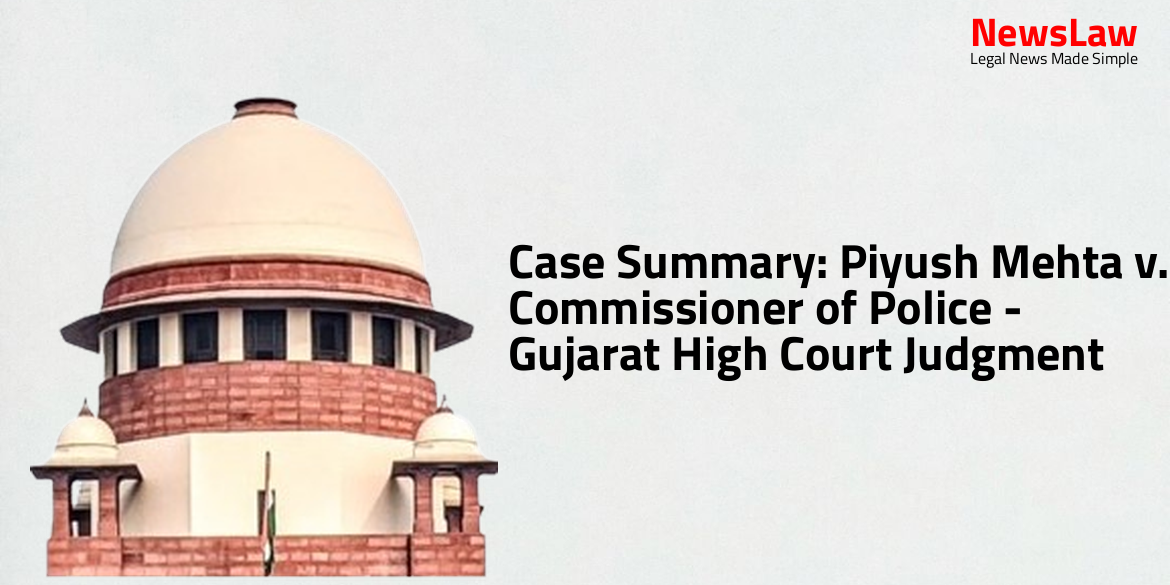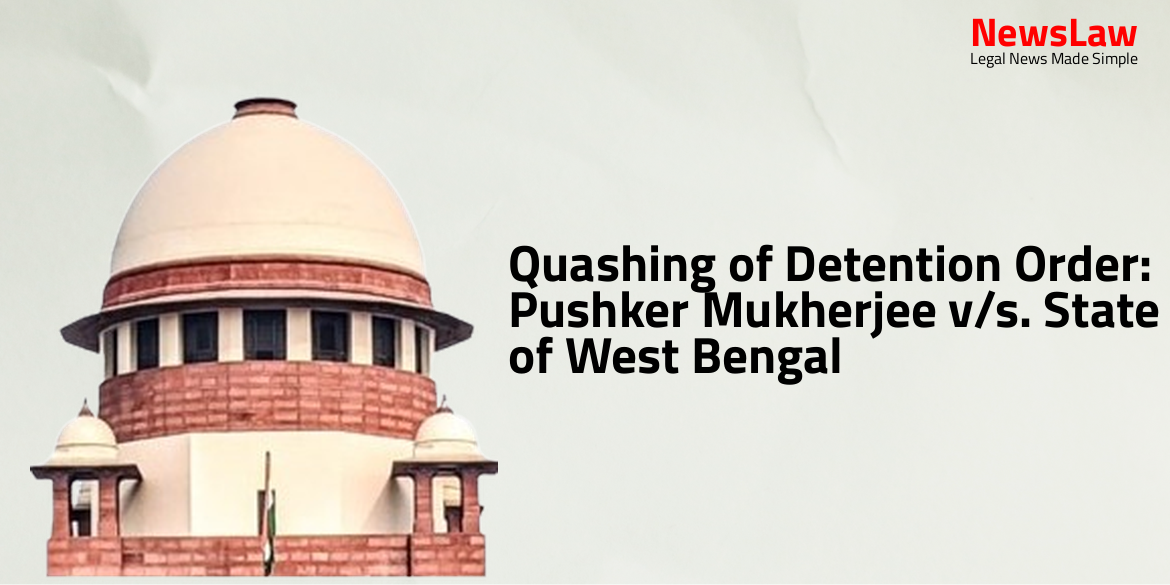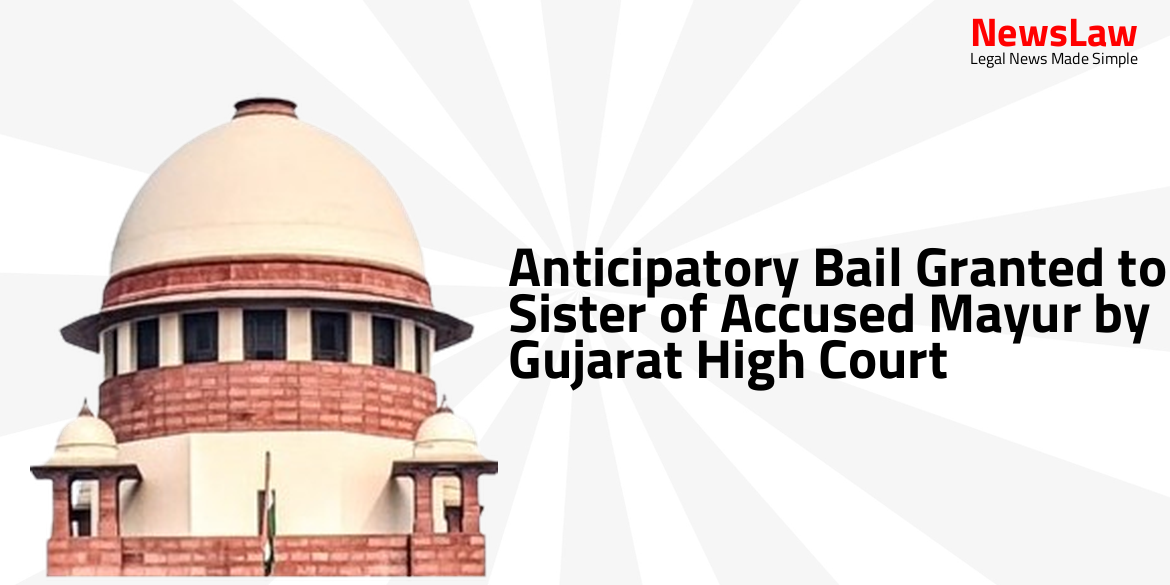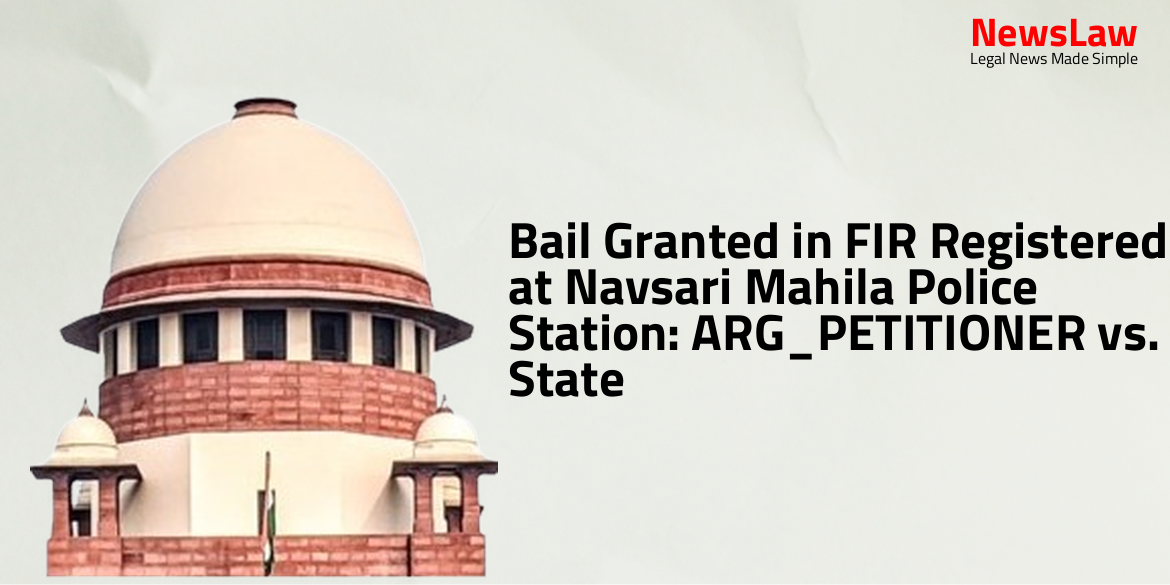In a recent landmark judgment, the Gujarat High Court ruled on the case of Piyush Mehta v. Commissioner of Police concerning the legality of a detention order based on alleged activities. The court highlighted the importance of differentiating between law and order and public order in preventive detention cases. The judgment has far-reaching implications for understanding the legal boundaries of preventive detention. Stay tuned for a detailed analysis of the verdict.
Facts
- The legality and validity of the order has been challenged by the petitioner.
- The petitioner has raised objections against the order issued.
- The order in question has been subject to this petition for review.
Issue
- The issue at hand is whether the order of detention passed by the Detaining Authority under the Act of 1985 is legally valid.
- The grounds of detention are argued to be based on law and order rather than public order.
- Registration of the offence is claimed not to have affected or likely to affect the maintenance of public order.
- The alleged offences are said to only impact law and order, not public order.
- The activities of the detenu are considered prejudicial to law and order but not to public order.
Arguments
- State Counsel argued that the detenue is a habitual offender.
- The activities of the detenue have a negative impact on society.
- The Detaining Authority considered the detenue’s antecedents and past activities before passing the order.
- The impugned order aims to prevent the detenue from engaging in activities prejudicial to public order in Ahmedabad.
Analysis
- The acts constituting the alleged offences, including incidents of beating, do not affect the maintenance of public order.
- Being a bootlegger alone does not warrant preventive detention unless activities adversely impact public order as per the Act.
- Detention based on four prohibition cases was deemed unjustified as they do not relate to public order maintenance.
- The grounds for detention did not sufficiently prove that the petitioner’s actions affect public order.
- The detaining authority failed to establish how the petitioner’s alleged anti-social activities impact public order.
- The detaining authority inadequately justified detainment based on the petitioner’s activities as a bootlegger.
- The distinction between ‘law and order’ and ‘public order’ is crucial in determining preventive detention.
- Contravention of any law affects order, but to affect public order, it must impact the community or public at large.
- There is a clear line drawn between serious forms of disorder affecting the public interest and minor breaches of peace localized to specific individuals.
- Mere disturbance of law and order, leading to disorder, does not necessarily constitute a basis for preventive detention.
- The case of Piyush Kantilal Mehta v. Commissioner of Police, Ahmedabad highlights the importance of understanding the difference between law and order and public order in preventive detention.
- Public order involves actions that impact the community or public interest, not just conflicts between specific individuals.
- The alleged offences and allegations against the petitioner did not create feelings of insecurity, panic, or terror among the public
- The activities of the detainee did not adversely affect or have the potential to adversely affect the maintenance of public order
- The subjective satisfaction of the detaining authority was deemed illegal, invalid, and not in accordance with the law
Decision
- The petition is allowed.
- Direct service is permitted.
- The rule is made absolute.
- The order dated 30.12.2023 by the respondent authority is quashed.
- The detenue is directed to be set at liberty forthwith, if not required in any other case.
Case Title: ANIL@ KALI BALDEVBHAI MOHANBHAI SOLANKI THRU FATHER BALDEVBHAI MOHANBHAI SOLANKI Vs. COMMISSIONER OF POLICE, AHMEDABAD CITY
Case Number: R/SCA/3466/2024



